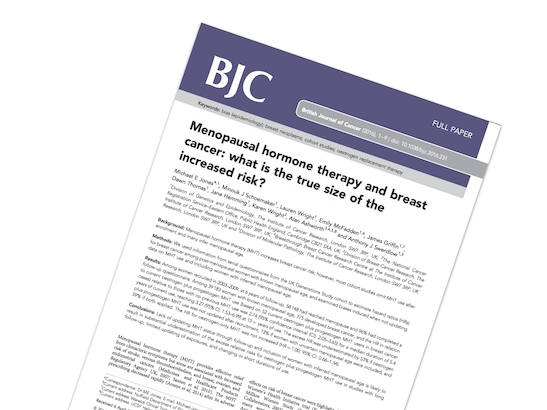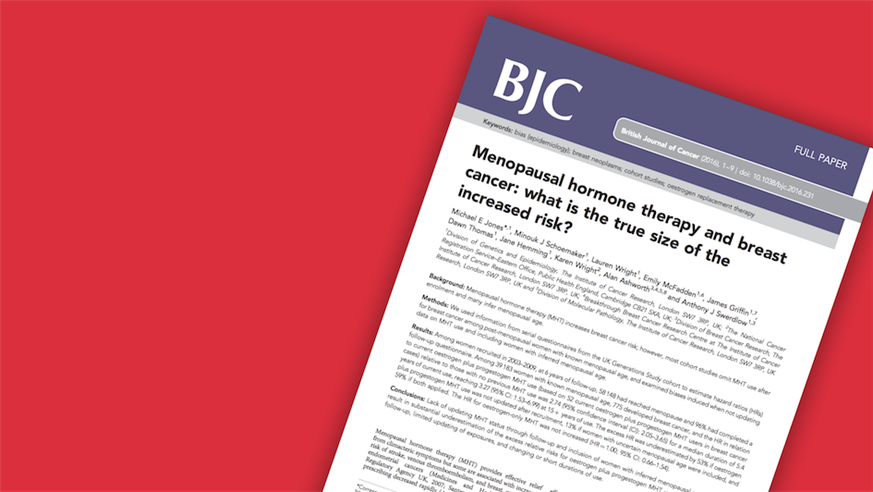A new study by researchers at The Institute of Cancer Research, London, recently hit the front pages. The research was part of the Breast Cancer Now Generations Study and was published in the British Journal of Cancer. The study found that the increased risk of breast cancer from taking combined hormone replacement therapy (HRT) was likely to have been underestimated by some studies.
So where does this study fit in a complex picture of emerging research about the use of HRT?
There have been a number of studies in the past that show that combined HRT containing both oestrogen and progesterone increases the risk of developing breast cancer, and that this risk increases with duration of use.
The UK Million Women Study and US Women's Health Initiative both highlighted this increased risk more than 10 years ago, and as a consequence HRT prescribing dropped. Importantly, these studies also found that two to five years after a woman stops taking HRT her risk drops back to the level of those who have never taken HRT.
The new research has found that some of the studies of HRT in the past may have underestimated the risk with combined HRT for methodological reasons. These studies didn’t always follow up after classifying women as HRT users or not – meaning that some women stated as using HRT had stopped doing so, and that some who had not been taking HRT had started doing so. The upshot of this, along with other aspects of the methodology, could mean that some older studies of combined HRT under-estimated risk by as much as 60 per cent.
What does this mean for individual women?
This is just one research study that gives one part of the picture, so it is important to fit this finding alongside what else we know. HRT has very significant benefits for many women providing effective relief from menopausal symptoms, and risks should be weighed against this. We also know that some types of HRT affect the risks of stroke, venous thromboembolism, ovarian, and endometrial cancer.
Every woman has a different medical background and a different experience of menopause. So each individual woman will have her own balance of risks and benefits which will inform her choice. This study provided one piece of information, but it needs to be viewed in a wider context. Women should discuss these issues with their GP or consultant in view of their own medical background to help them decide what is best for them.
It is also important to know that the risk of any getting any type of cancer is complex. Risk of developing cancer is determined by many different things working together. These factors include the genes a person inherits from their parents, as well as lifestyle factors such as exercise, obesity and alcohol consumption.
Where now for research?
Like all scientific findings, these results will need to be replicated in further studies. The researchers will also be following up the cohort in the future to gain further insight. It is hoped that the new finding can, however, be used to help consider the risk:benefit ratio for patients.
In summary, there are a lot of data out there on the risks and benefits of combined HRT and it is good for women to have the latest figures. But only individual women themselves — in conjunction with their doctor — can decide whether HRT is right for them.

